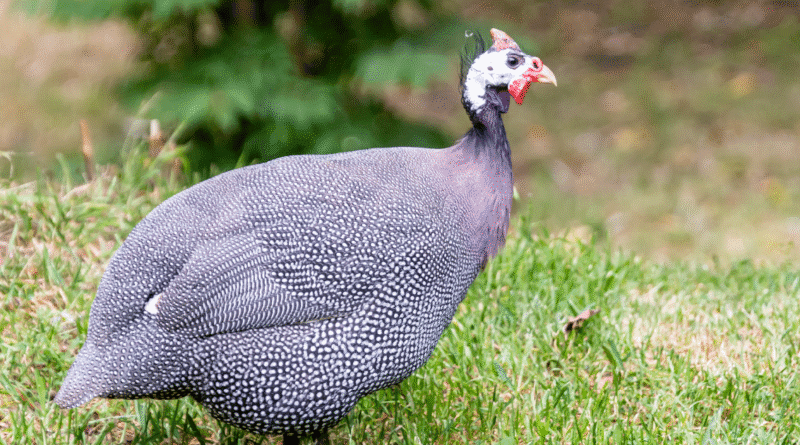Guinea Fowl Guinea Fowl: The Complete Guide to This Unique Bird
Introduction
When people hear the words guinea fowl guinea fowl, they often imagine a bird that is both exotic and useful. These birds are not just ordinary farm creatures; they are tough, noisy, and full of personality. From their spotted feathers to their loud calls, guinea fowl stand out in the bird kingdom.
For centuries, guinea fowl have been raised for meat, eggs, pest control, and even as natural alarm systems. Farmers, homesteaders, and bird lovers all appreciate their unique qualities. This guide will take you deep into the world of guinea fowl, explaining their history, habits, benefits, and care tips in simple and engaging words.
What is Guinea Fowl Guinea Fowl?
Guinea fowl guinea fowl is a collective term used for the bird species belonging to the family Numididae, originally from Africa. They are close relatives of chickens and turkeys but have their own unique characteristics.
- Scientific Name: Numida meleagris (Helmeted Guinea Fowl is the most common).
- Appearance: Small head, helmet-like crown, grayish feathers with white spots.
- Nature: Social, noisy, and very active.
- Habitat: Naturally found in the wild of Africa but now kept worldwide on farms.
History of Guinea Fowl Guinea Fowl
The history of guinea fowl goes back thousands of years. Ancient Egyptians were among the first to domesticate them. Later, Portuguese explorers carried them from West Africa to Europe in the 15th century. Since then, these birds spread across Asia, the Americas, and everywhere farming was practiced.
Types of Guinea Fowl Guinea Fowl
1. Helmeted Guinea Fowl
- Most common and popular.
- Easily recognized by their spotted feathers.
2. Crested Guinea Fowl
- Beautiful crest on top of their head.
- More ornamental than practical.
3. White-breasted Guinea Fowl
- Rare and mostly found in the wild.
- Protected species in many regions.
4. Vulturine Guinea Fowl
- Largest and most striking in appearance.
- Has blue feathers and long neck.
Benefits of Raising Guinea Fowl Guinea Fowl
Natural Pest Control
Guinea fowl love to eat insects, ticks, beetles, and even small snakes. Farmers use them as eco-friendly pest controllers.
Healthy Meat and Eggs
Their meat is lean, tasty, and rich in protein. The eggs are smaller than chicken eggs but full of nutrients.
Natural Security Alarm
These birds are very alert and noisy. Whenever they sense danger, they make loud sounds that alert the entire farm.
Low Maintenance
They are hardy, resistant to many diseases, and can survive with minimal care compared to chickens.
Feeding Guinea Fowl Guinea Fowl
- Chicks (Keets): Require protein-rich starter feed.
- Adults: Thrive on grains, greens, seeds, and insects.
- Free Range: They love to roam and self-feed by foraging.
Housing and Care
- Provide a dry, secure coop at night to protect them from predators.
- Ensure ample space because guinea fowl love to run and fly.
- Use perches as they prefer roosting above the ground.
Guinea Fowl Guinea Fowl Farming
Raising guinea fowl is now becoming popular worldwide. They are profitable for small farmers because they require little investment. With proper marketing, guinea fowl meat and eggs can bring a good income.
- Investment: Low compared to poultry.
- Demand: High in gourmet restaurants and organic markets.
- Profit: Their meat sells at a premium price.
Fun Facts About Guinea Fowl Guinea Fowl
- They can live up to 12 years in good conditions.
- A group of guinea fowl is called a confusion.
- They fly better than chickens and prefer high places.
- Their spotted feathers were once used in fashion.
Challenges in Raising Guinea Fowl Guinea Fowl
- They can be too noisy for some neighborhoods.
- Harder to train compared to chickens.
- They sometimes wander away if not raised from chicks.
Conclusion
Guinea fowl guinea fowl are more than just birds. They are natural protectors, eco-friendly pest controllers, and a healthy food source. Whether you are a farmer, homesteader, or bird enthusiast, guinea fowl bring value, beauty, and usefulness to your life.
By learning how to raise and care for them properly, you not only gain benefits for yourself but also support sustainable farming. Truly, guinea fowl guinea fowl are birds worth knowing and keeping.
FAQs About Guinea Fowl Guinea Fowl
1. Are guinea fowl guinea fowl good for backyards?
Yes, they are excellent for backyards if you have enough space and don’t mind noise.
2. How long do guinea fowl live?
They can live up to 10–12 years with proper care.
3. Do guinea fowl lay eggs like chickens?
Yes, they lay eggs, but their eggs are smaller and harder-shelled.
4. Can guinea fowl live with chickens?
Yes, they can live together, but guinea fowl are more active and sometimes bossy.
5. Are guinea fowl profitable?
Absolutely. Their meat and eggs sell for higher prices, making them profitable for small-scale farmers.
